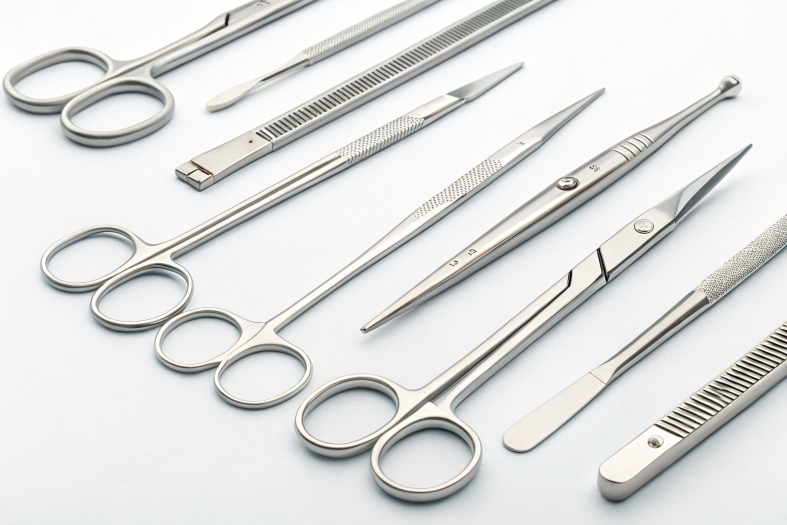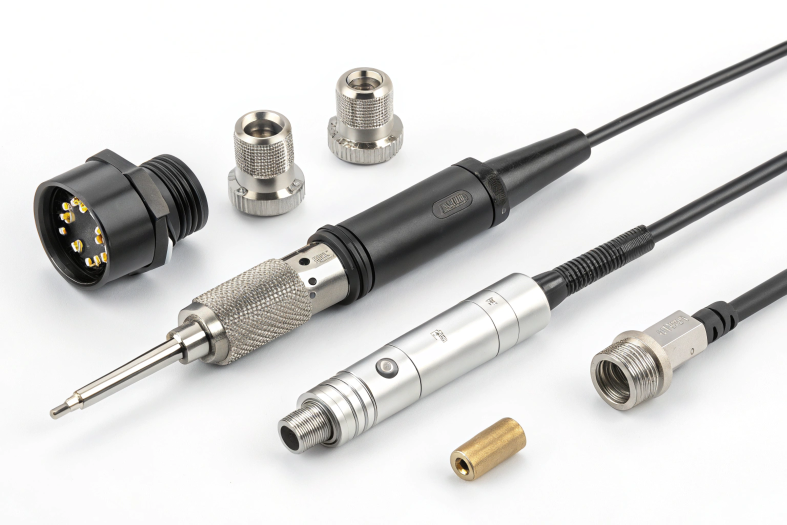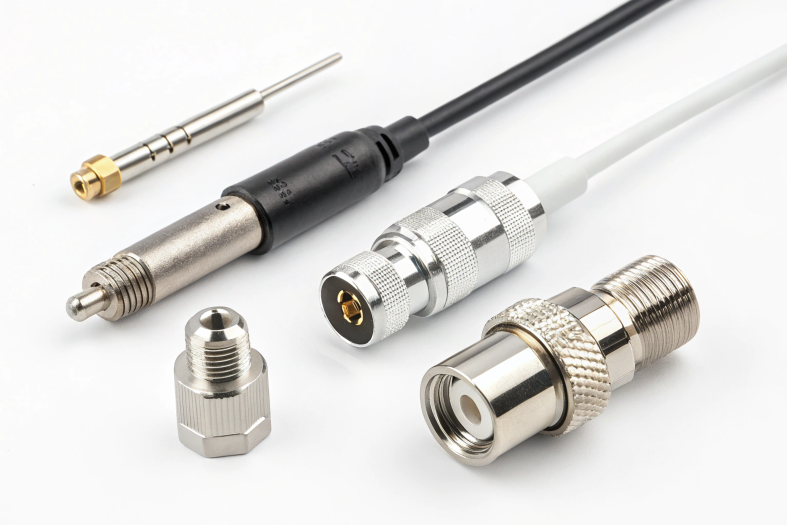The medical device industry demands the highest precision and reliability, making CNC machining an ideal solution for producing critical components. As medical technology advances, the complexity of the parts used in devices increases, and manufacturers need machining processes that can meet these stringent requirements. If you're involved in the production of medical devices, understanding the role of CNC machined parts can help ensure the performance and safety of these life-saving instruments.
Direct Answer:
CNC machined parts used in medical devices include components such as surgical instruments, implantable devices, diagnostic equipment, and housings for electronic devices. These parts require high precision, material biocompatibility, and durability, ensuring safety and reliability in medical applications.

Role of CNC Machined Parts in Medical Devices
High Precision Requirements
Medical devices demand the highest levels of precision, as even the smallest deviation can lead to critical failures. CNC machining, with its ability to work with tolerances as tight as a few microns, ensures that every part is manufactured with the exact specifications needed. For example, a surgical instrument like a forceps or a dental implant must have precise dimensions to ensure proper functionality and safety during use. CNC machines deliver this level of accuracy consistently, making them an essential technology for producing medical parts that require complex geometries and tight tolerances.
Customization
Another key advantage of CNC machining in the medical field is its ability to create highly customized parts. Whether it's a unique surgical tool, a custom implant, or a specialized diagnostic component, CNC machines can be programmed to produce exactly what is needed. This flexibility is especially important in the medical industry, where personalized treatments are becoming more common. For example, customized implants for joint replacements can be designed to fit a patient's unique anatomy, enhancing the effectiveness of the surgery and improving patient outcomes.
Common CNC Machined Parts in Medical Devices
CNC machining produces a wide range of components used in medical devices, from simple parts to highly intricate designs.
Surgical Instruments
Surgical instruments, such as handles for surgical knives, forceps, and hemostats, require extreme precision and durability. These instruments often feature ergonomic designs and need to withstand repeated sterilization processes. CNC machining is ideal for producing these tools with the exact specifications needed for optimal performance during surgeries.
Implants
Implants are one of the most critical areas in medical devices. CNC machining is used to produce joint implants, dental implants, and spinal implants. These parts need to be crafted from biocompatible materials like titanium and designed to fit perfectly within the human body. For instance, a custom knee implant manufactured through CNC machining can be tailored to a patient's specific measurements, improving the success of the procedure and minimizing recovery time.
Diagnostic Equipment Components
CNC machined parts are also essential in diagnostic medical equipment, such as CT scanners, X-ray machines, and ultrasound devices. Components like housings, frames, and gears must be precisely manufactured to ensure the machines function correctly and produce accurate results. The complex shapes and sizes of these parts make CNC machining the ideal solution for producing them with reliability.
Precision Sensors and Electronics
Medical devices often contain high-precision sensors and electronic components, such as probes, connectors, and housings for various medical devices. CNC machining allows for the creation of small, intricate parts that ensure the proper functioning of diagnostic and monitoring equipment. These components are critical for devices that require real-time, accurate data to inform healthcare decisions.

Material Selection and CNC Machining
Common Materials
Medical device manufacturers often rely on materials such as stainless steel, titanium alloys, and aluminum alloys for CNC machining. These materials are selected for their strength, durability, and biocompatibility. For example, titanium is widely used for implants due to its resistance to corrosion and its ability to integrate with bone tissue. Stainless steel, on the other hand, is commonly used in surgical instruments because of its robustness and ease of sterilization.
Biocompatibility
One of the most important factors when selecting materials for CNC machining in the medical field is biocompatibility. The materials used must not cause any adverse reactions in the body. CNC machining allows manufacturers to create parts from materials that meet the stringent standards set by regulatory agencies, ensuring patient safety and device performance. Materials undergo rigorous testing to ensure they meet biocompatibility standards before they are used in medical applications.
Advantages of CNC Machining for Medical Device Manufacturing
High Precision and Repeatability
CNC machining ensures that each part is manufactured with the exact specifications required, providing both high precision and repeatability. This means that once a design is set, the machine can produce thousands of identical parts without any deviation, ensuring consistent quality across every unit. This level of consistency is critical for medical devices, where even the smallest error can have significant consequences.
Short Lead Time
In the fast-paced medical industry, time is of the essence. CNC machining significantly reduces the lead time for prototyping and production, allowing medical device manufacturers to quickly test designs, make adjustments, and move forward with full-scale production. This ability to rapidly produce high-quality prototypes and production parts means that medical devices can be developed and brought to market much faster, benefiting both manufacturers and patients.

Conclusion
CNC machined parts are indispensable in the manufacturing of medical devices. From surgical instruments to implants and diagnostic equipment, CNC machining ensures high precision, customization, and reliability. The ability to work with biocompatible materials, create intricate designs, and maintain strict tolerances makes CNC machining the go-to method for medical device production. As the healthcare industry continues to advance, the role of CNC machining will remain pivotal in delivering high-quality, safe, and effective medical devices to patients worldwide.
FAQ:
1. What is CNC machining in the medical industry?
CNC machining in the medical industry refers to the use of computer-controlled machines to precisely manufacture parts and components used in medical devices. These parts can include surgical instruments, implants, diagnostic equipment components, and more. CNC machining ensures high accuracy, repeatability, and customization, which are essential for patient safety and device performance.
2. What are CNC machined parts examples?
Examples of CNC machined parts used in the medical industry include:
- Surgical instruments: Handles for surgical knives, forceps, hemostats, and scalpels.
- Implants: Joint implants, dental implants, and spinal implants made from biocompatible materials like titanium.
- Diagnostic equipment components: Housings, gears, and frames for devices like CT scanners, X-ray machines, and ultrasound devices.
- Precision sensors and electronics: Small parts like probes, connectors, and housings for diagnostic or monitoring devices.
3. What does CNC stand for in the pharmaceutical industry?
In the pharmaceutical industry, CNC stands for "Computer Numerical Control," just as in other industries. CNC is used to manufacture precision components for pharmaceutical devices and equipment, such as pill presses, dosage measuring equipment, and packaging machinery. The technology helps ensure consistency, precision, and scalability in production processes.


